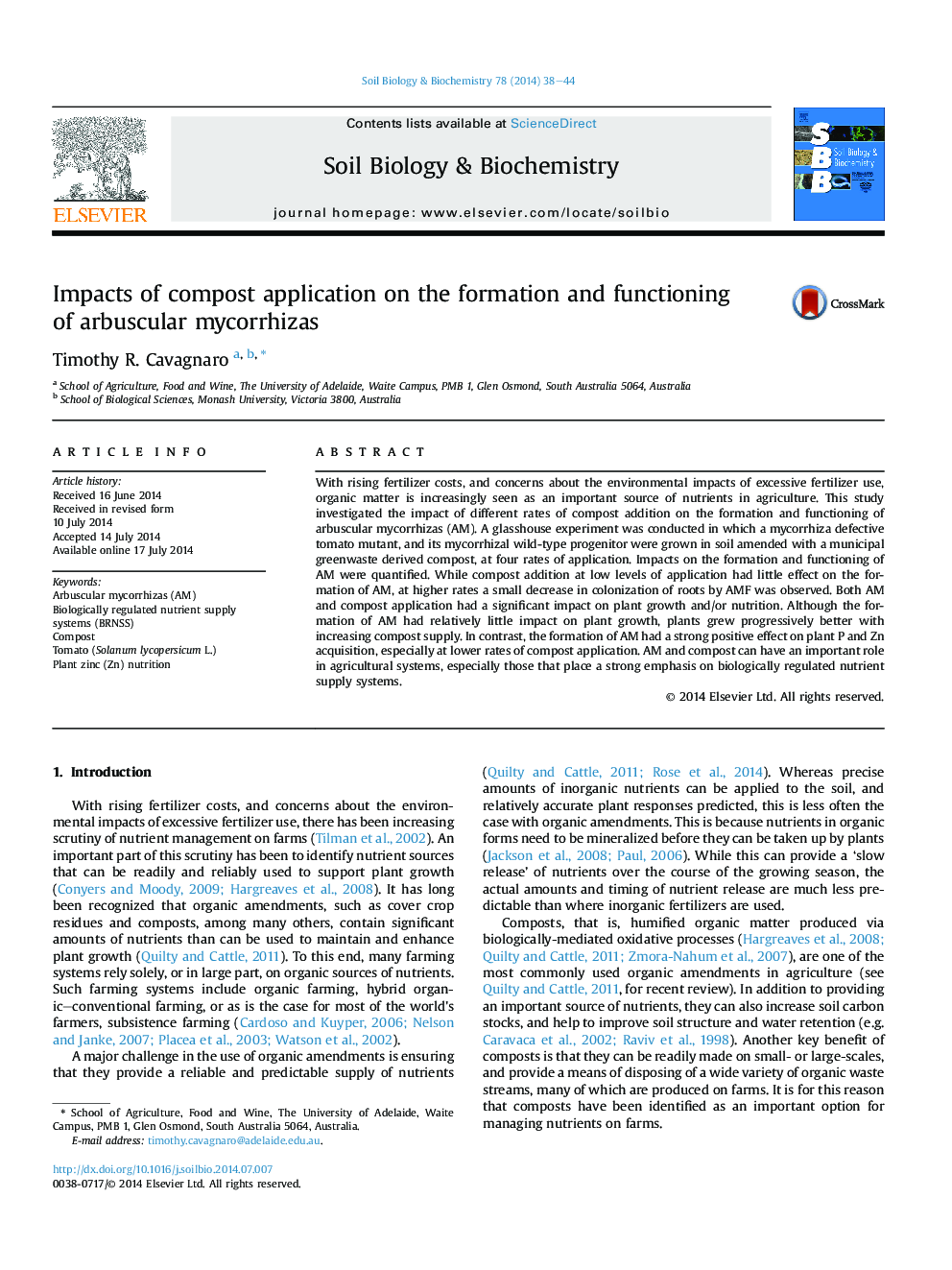| Article ID | Journal | Published Year | Pages | File Type |
|---|---|---|---|---|
| 2024567 | Soil Biology and Biochemistry | 2014 | 7 Pages |
•Impacts of compost on formation and function of arbuscular mycorrhizas were studied.•Mycorrhizal plants took up more P and Zn especially at low rates of compost addition.•AM and compost are important parts of biologically regulated nutrient supply systems.
With rising fertilizer costs, and concerns about the environmental impacts of excessive fertilizer use, organic matter is increasingly seen as an important source of nutrients in agriculture. This study investigated the impact of different rates of compost addition on the formation and functioning of arbuscular mycorrhizas (AM). A glasshouse experiment was conducted in which a mycorrhiza defective tomato mutant, and its mycorrhizal wild-type progenitor were grown in soil amended with a municipal greenwaste derived compost, at four rates of application. Impacts on the formation and functioning of AM were quantified. While compost addition at low levels of application had little effect on the formation of AM, at higher rates a small decrease in colonization of roots by AMF was observed. Both AM and compost application had a significant impact on plant growth and/or nutrition. Although the formation of AM had relatively little impact on plant growth, plants grew progressively better with increasing compost supply. In contrast, the formation of AM had a strong positive effect on plant P and Zn acquisition, especially at lower rates of compost application. AM and compost can have an important role in agricultural systems, especially those that place a strong emphasis on biologically regulated nutrient supply systems.
